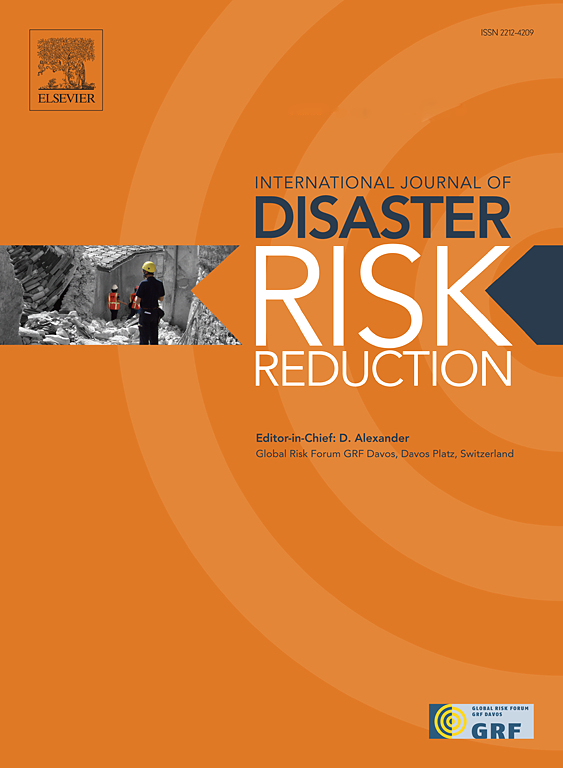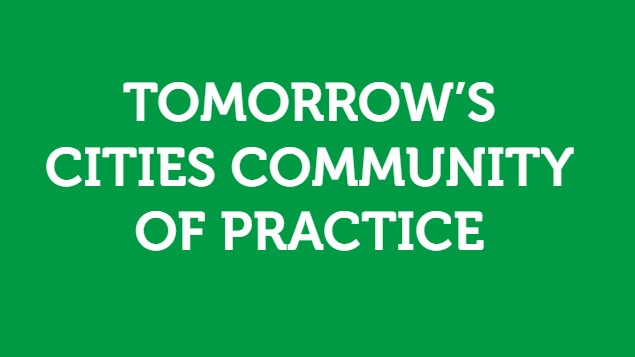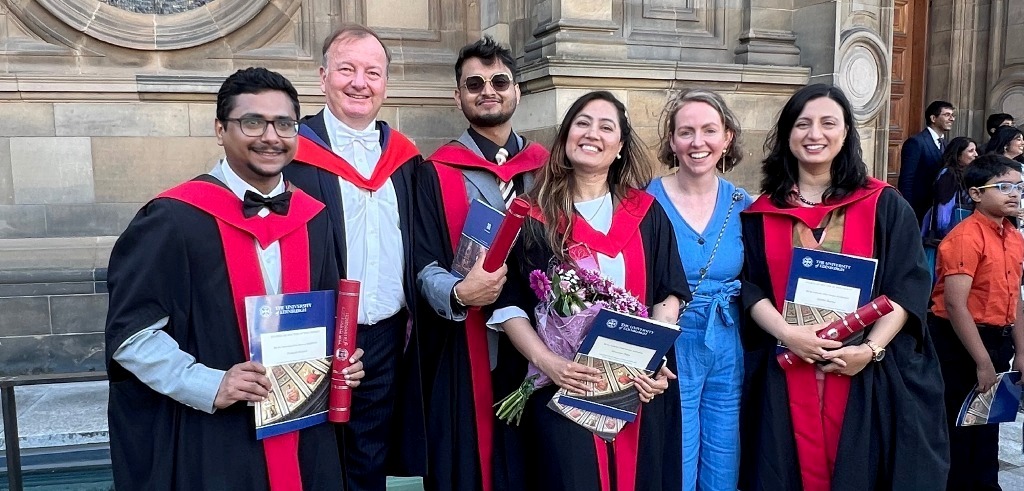
- Close
30/01/2023 | Global
International Journal of Disaster Risk Reduction publishes a Tomorrow’s Cities Decision Support Environment special issue.

A special issue entirely dedicated to the Tomorrow’s Cities Decision Support Environment (TCSE), was just published by the International Journal of Disaster Risk Reduction.
Edited by Tomorrow’s Cities researchers Gemma Cremen, Maria Evangelina Filippi, Suresh Chaudhary, Emin Yahya Menteşe and John McCloskey from University College London, University of Bristol, National Society for Earthquake Technology-Nepal, the Boğaziçi University – Türkiye and the University of Edinburgh respectively, the special issue, which is not yet complete, currently features five articles authored by several of the Hub’s researchers and provides an overview of the creation process, objectives and technical capabilities of the TCDSE.
In the Special Issue’s introductory article, Gemma Cremen and colleagues tell the story of how the TCDSE came to life, from the initial idea advanced in 2021 by the Risk Working Group of the Hub led by Carmine Galasso, Professor of Catastrophe Risk Engineering at the UCL’s Department of Civil, Environmental & Geomatic Engineering, to the current version that expanded that initial concept and built an effective operational environment that allows for multi-hazard, risk-informed planning and decision-making which is people-centred and pro-poor. The article also provides a detailed description of the different operational components and a short end-to end operational demonstration of the TCDSE using Tomorrowville, a 500-ha virtual urban testbed that simulates a Global South setting in terms of its physical and socioeconomic characteristics.
The idea behind this Special Issue was to showcase the multi-faceted interdisciplinary research of the Hub. The collection closely examines various aspects of the TCDSE, from its use of state-of-the-art physics-based multi-hazard models to its ability to support end-to-end risk-informed, pro-poor decision making on future urban development.
Gemma Cremen – Co-investigator Tomorrow’s Cities Hub
Lecturer in Risk and Resilience Engineering – University College London
Led by Maria E. Filippi, the article “Interdisciplinarity in practice: Reflections from early-career researchers developing a risk-informed decision support environment for Tomorrow’s cities”, shares the experiences of seventeen early-career researchers from several organisations across the global North and South and working on different scientific disciplines who came together to, over the course of seven months, transform the TCDSE concept into a framework that could be applied in rapidly growing and expanding cities.
A crucial stage of the TCDSE is the application of physics-based computational modelling techniques to calculate the impact of several hazards to the built environment. In another article of the special issue, UCL researchers Roberto Gentile, Gemma Cremen, Carmine Galasso, together with Luke Jenkins from the University of Bristol, Vibek Manandhar and Ramesh Guragain from the National Society for Earthquake Technology, Nepal, Emin Yahya Menteşe from Boğaziçi University, Türkiye and John McCloskey from the University of Edinburgh give an overview of currently available physical impact models for different natural hazards and devise a workflow that allows users of the TCDSE to choose the most suitable models to be applied in each specific case. Using Tomorrowville, the researchers present an illustrative application of this workflow.

Adapted from Mentese et al.
Researchers led by Chenbo Wang from UCL, focus on the ability of the TCDSE to help design pro-poor financial policies in expanding cities.
Previous research shows that instruments such as earthquake insurance, used around the world in countries such as the US and Japan, commonly fall short of their objectives due to a great disparity in the percentage of covered assets – mainly because their high cost makes them prohibitive for many – and the fact that they do not consider the needs of low-income groups. Other policies such as post-disaster cash transfers to disaster-affected people do not always have the desired effect, leaving the poorest without the necessary means to reconstruct their homes.
With that in mind, the study uses the TCDSE to develop a framework that facilitates the design and assessment of financial policies specifically aimed at residential properties in rapidly expanding cities and focused on the poorest citizens. Researchers used the virtual testbed Tomorrowville to demonstrate the application of the framework.
FInally, the last article currently available on the Special Issue focuses on physics-based simulations of multiple natural hazards. In it, reseachers present results of flood, earthquake, and debris flow simulation scenarios using Tomorrowville. Researchers led by Luke T.Jenkins from the University of Bristol show that simulations of multiple, independent hazards, can assist with the identification of developing urban regions that are vulnerable to potential multi-hazard events and that this information can direct further modelling to provide decision-makers with insights into potential multi-hazard events.
With four other articles focused on demonstrating how the various components of the TCDSE can be implemented in practice in real cities and one more on its technical details currently under review, this Special Issue will help guiding the implementation of the framework in the growing set of Global South cities that the Tomorrow’s Cities Hub supports.
“The TCDSE advances beyond the limits of current conventional risk models by placing knowledge co-production at the heart of risk-informed decision-making and explicitly recognising risk in terms that are meaningful to the life experiences of the poor and most marginalised.”
Gemma Cremen – Co-investigator Tomorrow’s Cities Hub
Lecturer in Risk and Resilience Engineering – University College London
About the TCDSE
Tomorrow’s Cities Decision Support Environment (TCDSE) is the Hub’s flagship framework to facilitate multi-hazard, risk-informed planning and decision-making aimed at reducing disaster risk in expanding cities. Using a collaborative approach, TCDSE facilitates risk-sensitive future urban planning owned not only by the planning authorities, municipalities, the government or the private sector, but also by the communities who will live in these future cities.



